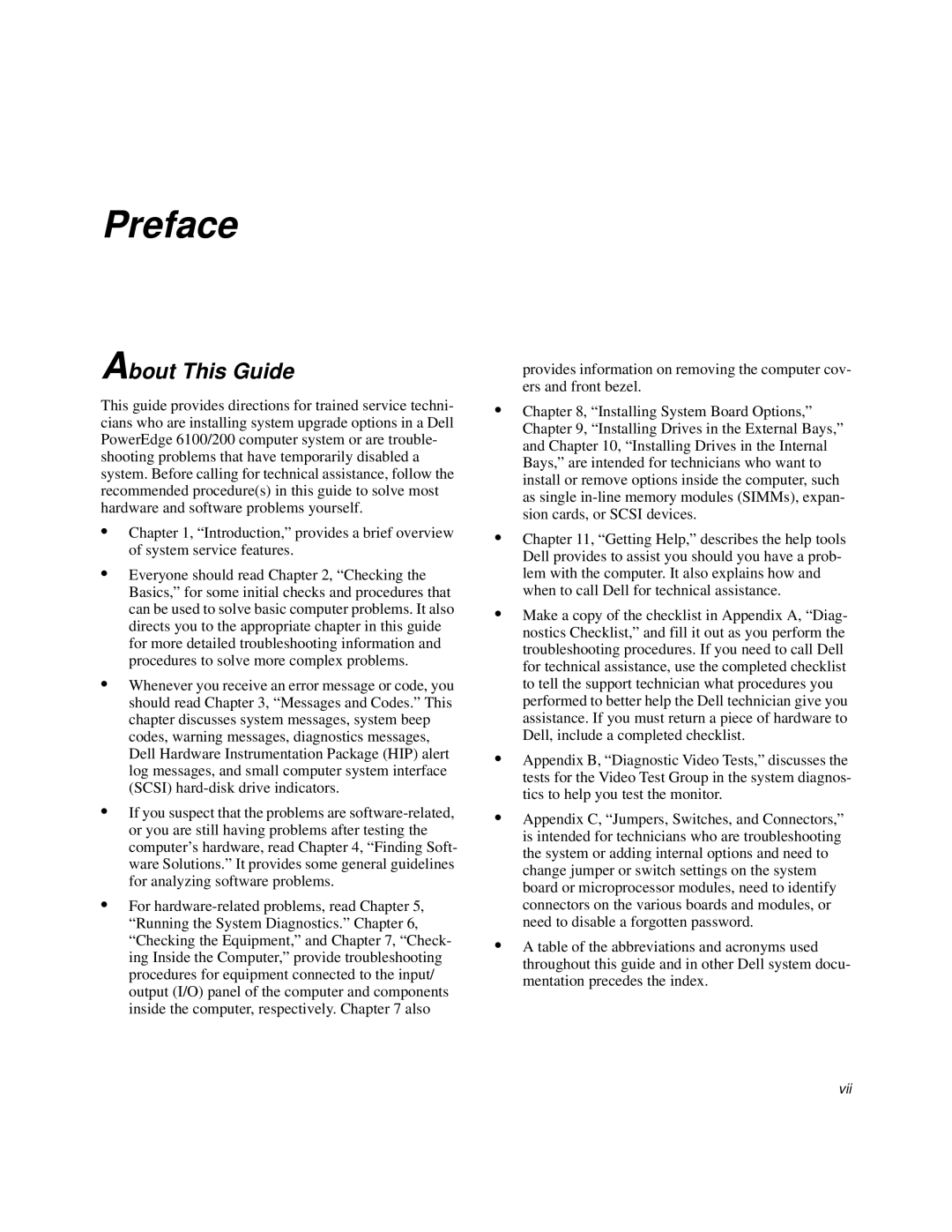Preface
About This Guide
This guide provides directions for trained service techni- cians who are installing system upgrade options in a Dell PowerEdge 6100/200 computer system or are trouble- shooting problems that have temporarily disabled a system. Before calling for technical assistance, follow the recommended procedure(s) in this guide to solve most hardware and software problems yourself.
•Chapter 1, “Introduction,” provides a brief overview of system service features.
•Everyone should read Chapter 2, “Checking the Basics,” for some initial checks and procedures that can be used to solve basic computer problems. It also directs you to the appropriate chapter in this guide for more detailed troubleshooting information and procedures to solve more complex problems.
•Whenever you receive an error message or code, you should read Chapter 3, “Messages and Codes.” This chapter discusses system messages, system beep codes, warning messages, diagnostics messages, Dell Hardware Instrumentation Package (HIP) alert log messages, and small computer system interface (SCSI)
•If you suspect that the problems are
•For
provides information on removing the computer cov- ers and front bezel.
•Chapter 8, “Installing System Board Options,” Chapter 9, “Installing Drives in the External Bays,” and Chapter 10, “Installing Drives in the Internal Bays,” are intended for technicians who want to install or remove options inside the computer, such as single
•Chapter 11, “Getting Help,” describes the help tools Dell provides to assist you should you have a prob- lem with the computer. It also explains how and when to call Dell for technical assistance.
•Make a copy of the checklist in Appendix A, “Diag- nostics Checklist,” and fill it out as you perform the troubleshooting procedures. If you need to call Dell for technical assistance, use the completed checklist to tell the support technician what procedures you performed to better help the Dell technician give you assistance. If you must return a piece of hardware to Dell, include a completed checklist.
•Appendix B, “Diagnostic Video Tests,” discusses the tests for the Video Test Group in the system diagnos- tics to help you test the monitor.
•Appendix C, “Jumpers, Switches, and Connectors,” is intended for technicians who are troubleshooting the system or adding internal options and need to change jumper or switch settings on the system board or microprocessor modules, need to identify connectors on the various boards and modules, or need to disable a forgotten password.
•A table of the abbreviations and acronyms used throughout this guide and in other Dell system docu- mentation precedes the index.
vii
